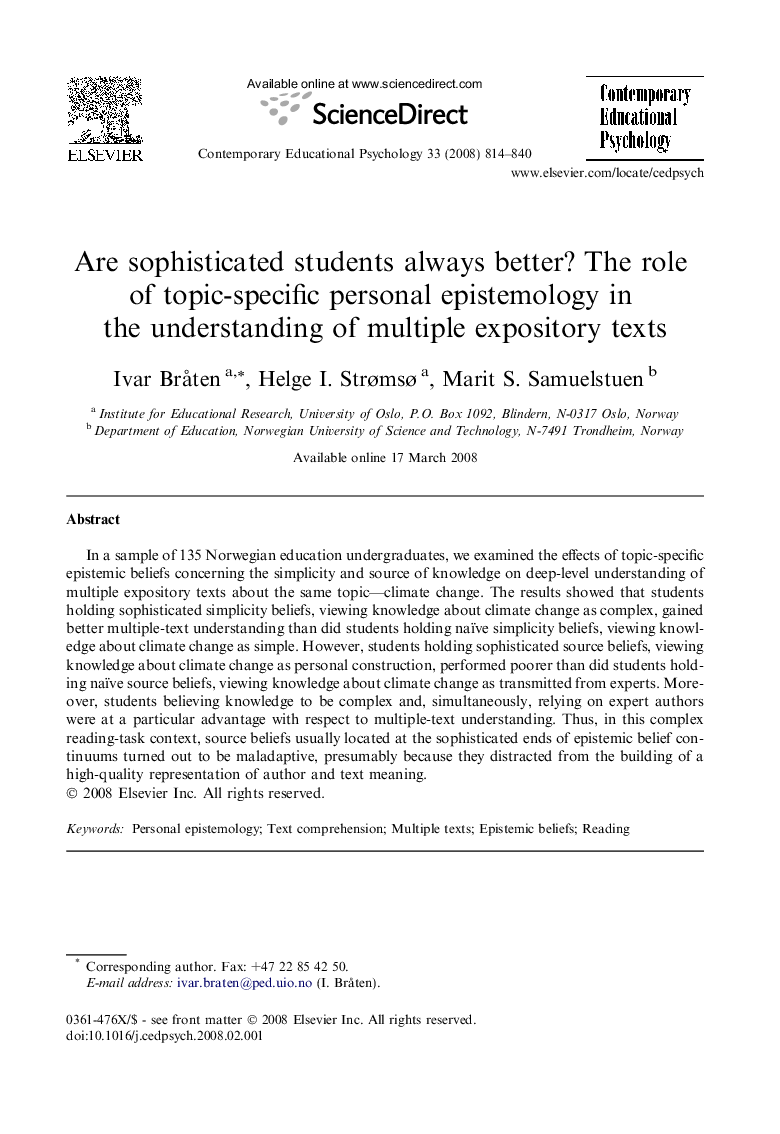| Article ID | Journal | Published Year | Pages | File Type |
|---|---|---|---|---|
| 352831 | Contemporary Educational Psychology | 2008 | 27 Pages |
In a sample of 135 Norwegian education undergraduates, we examined the effects of topic-specific epistemic beliefs concerning the simplicity and source of knowledge on deep-level understanding of multiple expository texts about the same topic—climate change. The results showed that students holding sophisticated simplicity beliefs, viewing knowledge about climate change as complex, gained better multiple-text understanding than did students holding naïve simplicity beliefs, viewing knowledge about climate change as simple. However, students holding sophisticated source beliefs, viewing knowledge about climate change as personal construction, performed poorer than did students holding naïve source beliefs, viewing knowledge about climate change as transmitted from experts. Moreover, students believing knowledge to be complex and, simultaneously, relying on expert authors were at a particular advantage with respect to multiple-text understanding. Thus, in this complex reading-task context, source beliefs usually located at the sophisticated ends of epistemic belief continuums turned out to be maladaptive, presumably because they distracted from the building of a high-quality representation of author and text meaning.
